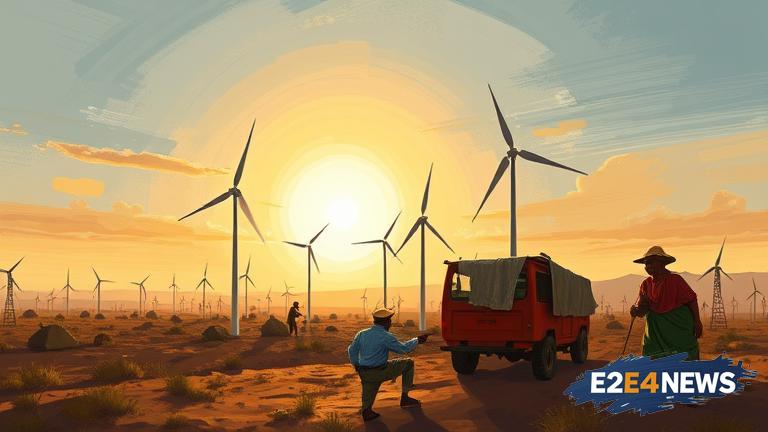The African continent is witnessing a significant shift towards renewable energy, driven by the need to address the pressing issues of energy access, climate change, and sustainable development. With a growing population and increasing economic activities, the demand for energy is on the rise, and renewable energy sources such as solar, wind, and hydroelectric power are becoming increasingly attractive. Many African countries are setting ambitious targets to increase their share of renewable energy in the energy mix, with some aiming to reach 100% renewable energy by 2050. The cost of renewable energy technologies has decreased dramatically over the years, making them more competitive with fossil fuels. Additionally, the benefits of renewable energy, including reduced greenhouse gas emissions, improved air quality, and enhanced energy security, are becoming more apparent. The African Union’s Agenda 2063 and the United Nations’ Sustainable Development Goals (SDGs) have also emphasized the importance of renewable energy in achieving sustainable development. Countries such as South Africa, Morocco, and Egypt are leading the way in renewable energy development, with significant investments in solar and wind power. The African Development Bank and other international organizations are providing financial and technical support to help countries develop their renewable energy sectors. However, despite the progress made, there are still significant challenges to be addressed, including the lack of infrastructure, limited access to financing, and the need for policy and regulatory frameworks that support the development of renewable energy. The private sector is also playing a crucial role in driving the growth of renewable energy in Africa, with companies such as Vestas, Siemens Gamesa, and Enel Green Power investing heavily in the continent. Furthermore, the development of renewable energy is creating new job opportunities and stimulating local economies, contributing to the achievement of the SDGs. The use of renewable energy is also improving energy access, particularly in rural areas where access to electricity is limited. In addition, renewable energy is helping to reduce energy poverty, which is a major challenge in many African countries. The African continent has an abundance of renewable energy resources, including solar, wind, hydro, and geothermal energy, which can be harnessed to meet the growing energy demands. The development of renewable energy is also contributing to the reduction of greenhouse gas emissions, which is critical in mitigating the impacts of climate change. Climate change is having a devastating impact on the African continent, with rising temperatures, changing precipitation patterns, and increased frequency of extreme weather events. The transition to renewable energy is therefore essential in reducing the continent’s vulnerability to climate change. Moreover, the development of renewable energy is promoting energy independence, reducing reliance on imported fossil fuels, and enhancing energy security. The African continent is also home to a number of innovative renewable energy projects, including the Desertec initiative, which aims to generate solar power in the Sahara Desert and transmit it to Europe. Other initiatives, such as the African Renewable Energy Initiative, are also promoting the development of renewable energy on the continent. In conclusion, the renewable energy revolution in Africa is gaining momentum, driven by the need to address the pressing issues of energy access, climate change, and sustainable development. With the right policies, investments, and technologies in place, the continent can unlock its vast renewable energy potential and achieve a sustainable energy future.
